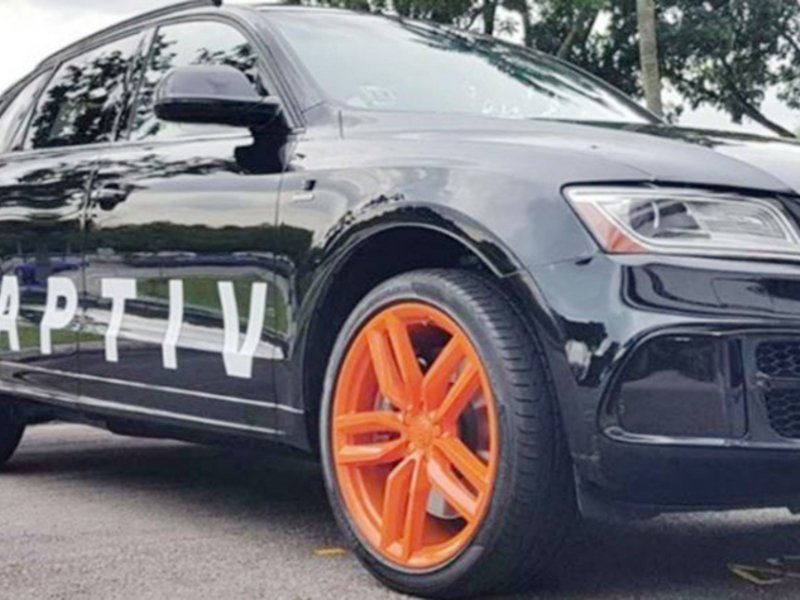
DETROIT — Aptiv said Tuesday that the crisis brought on by the COVID-19 pandemic hit its first-quarter revenue and operating income.
Revenue for the quarter fell 10 percent to $3.2 billion, largely resulting from volume declines associated with impacts of the virus, the electronics supplier said in a statement.
Aptiv joins several other major suppliers reporting their first-quarter earnings this week during the crisis.
Aptiv previously forecast first-quarter sales of $3.47 billion to $3.57 billion and full-year sales of $14.5 billion to $14.9 billion.
Revenue declined 12 percent to $902 million in Aptiv’s advanced safety and user-experience segment and 9 percent to $2.3 billion in its signal and power solutions segment in the first quarter.
Aptiv reported net income of $1.57 billion, compared with $240 million in the same period last year, resulting from the company’s completion in the quarter of the formation of its joint venture with Hyundai Motor Group centered on autonomous vehicle development.
The company said its first-quarter adjusted operating income margin fell to 7.2 percent from 9.7 percent, primarily as a result of “declines in global vehicle production and consumer demand, work stoppages, disruptions to our supply chain and other adverse global economic impacts, particularly those resulting from governmental ‘lockdown’ orders.”
Adjusted operating income dropped 33 percent to $231 million from last year’s period.
In a statement, CEO Kevin Clark emphasized the steps the company has taken to ensure safe restart protocols in its facilities across the globe and get the company back on track.
“During the first quarter, we also took decisive actions in partnership with our key stakeholders to preserve our financial strength, and better position Aptiv to navigate, innovate and lead through the disruption,” Clark said.
“Reflecting on the progress we have made the past few years to strengthen our through-cycle resiliency, we entered these unprecedented times with an incredibly strong balance sheet, robust business model and strategically positioned product portfolio.”
Clark said Tuesday in a call with investors that he expects the financial impact on the second quarter to be much more severe than it was on the first quarter.
Aptiv forecast second-quarter global vehicle production will be down roughly 50 percent from a year ago and predicts global light-vehicle production will drop 20 to 30 percent for the full year.
Aptiv shares gained 4 percent to $66.90 in early trading in New York.
Much like most major auto suppliers, Aptiv withdrew its full-year guidance. Aptiv also is not providing a second-quarter guidance because of uncertainties resulting from the pandemic.
Aptiv also sought to bolster its cash position. In a business update March 23, Aptiv said it drew down approximately $1.4 billion on its revolving credit facility.
As of March 31, Aptiv had cash and cash equivalents of $2.1 billion and total available liquidity of $2.2 billion, the company said.
Aptiv’s board of directors also voted to suspend the company’s dividend of approximately $225 million annually, the supplier said.
Aptiv has taken other measures to “manage costs, capital spending and working capital to further strengthen liquidity, including the ramping down of certain production facilities in response to customer plant closures and changes in vehicle production schedules,” the company said.
This includes implementing executive pay cuts, employee furloughs and temporary layoffs, cutting discretionary spending and deploying a global COVID-19 Pandemic Plan across all sites.
The company said all of its sites in China are operating at levels below capacity. Some Aptiv sites in Europe are starting production, and some sites in North America are operating to support essential needs.
Aptiv, of Dublin, ranks No. 20 on the Automotive News list of the top 100 global suppliers, with worldwide sales to automakers of $12.87 billion in 2018.